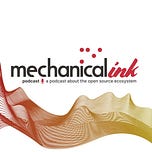In this episode of the Mechanical Ink podcast, host Schalk Neethling sits down with web accessibility specialist Hidde de Vries. We discuss the NL Design System project, an ambitious open-source initiative by the Dutch government aimed at creating a unified design system and set of components for all government websites and digital services. The project takes a collaborative approach, where different government organizations contribute components, guidelines, and user research, fostering a community-driven effort towards accessibility and inclusivity.
Web accessibility emerges as a central theme, emphasizing the importance of ensuring digital products and services are usable for everyone, including people with disabilities. The discussion delves into the challenges of automated accessibility tools and overlays, highlighting the need for manual testing and a deep understanding of accessibility principles. Additionally, the role of AI and language models in accessibility is explored, recognizing their potential benefits, such as automated transcription, while acknowledging their limitations in understanding context and intent.
The significance of HTML and the evolution of web standards is also highlighted, with Hidde expressing excitement about new features like the `popover` attribute and `invokers` API, which simplify the implementation of accessible components and interactions. Furthermore, the impact of AI-generated code on web accessibility is discussed, emphasizing the need to guide and train these models to prioritize accessibility and produce code that adheres to accessibility standards and best practices.
Links
Talk: Could browsers fix more accessibility problems automatically?
On popover accessibility: what the browser does and doesn’t do
Community
Join the community on Slack
Recorded with Riverside.fm (Affiliate link)










